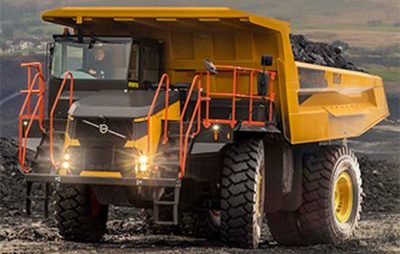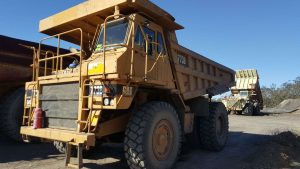

Operating dump trucks in industries like construction, mining, and waste management is a critical task that demands skill, precision, and, above all, a commitment to safety. These vehicles play an indispensable role in moving heavy loads efficiently, but they also carry significant risks if improperly handled. Safety is not merely a personal obligation – it is a collective responsibility that safeguards lives, property, and operational productivity. Central to achieving this is comprehensive dump truck training, equipping operators with the necessary knowledge and skills to reduce accidents and ensure smooth operations.
The Role of Dump Truck Training in Safety
Dump truck training serves as the foundation for safe and efficient operations, addressing technical know-how and cultivating a culture of safety.
Fostering Safe Operational Practices
Effective training prioritises safety by instilling critical measures, such as:
- Load Balancing: Operators learn techniques to distribute loads evenly, preventing vehicle instability.
- Pre-Operational Checks: Daily vehicle inspections ensure mechanical reliability, minimising potential failures during use.
- Controlled Speeds: Maintaining safe driving speeds is particularly important when navigating inclines or uneven surfaces.
Detailed Understanding of Safety Protocols
Operators acquire vital skills, such as:
- Recognising hazards before they escalate into risks.
- Applying safe parking techniques to reduce the chance of equipment rollbacks.
- Managing appropriate distances to avoid collisions or equipment damage.
Learning Through Case Studies
Real-life examples form an integral part of training. Analysing past accidents helps operators understand the consequences of unsafe practices. For instance, improper load management has been linked to numerous rollovers, underscoring the importance of this training module.
Common Causes of Dump Truck Accidents
Understanding the root causes of dump truck accidents is vital for creating targeted and effective training programs.
Overloading and Improper Load Distribution
Overloaded vehicles or unevenly distributed loads often result in:
- Rollover Risks: Excess weight or imbalance causes vehicles to tip over, especially on inclines.
- Mechanical Strain: Prolonged overloading can damage the truck’s suspension and tyres, leading to breakdowns.
Neglected Inspections and Maintenance
Skipping pre-start checks can have severe consequences:
- Brake malfunctions or hydraulic failures may occur mid-operation.
- Worn tyres or low fluid levels increase the likelihood of accidents.
Unsafe Driving Habits
Driving mistakes are a leading cause of accidents, such as:
- Excessive speeds, particularly in work zones.
- Failure to adjust to environmental factors, like rain or loose gravel.
- Recklessness on slopes or narrow pathways.
Core Components of Effective Dump Truck Training
A robust training program provides a comprehensive toolkit of skills and knowledge to improve operational safety and efficiency.
Emphasis on Vehicle Inspection and Maintenance
Training covers:
- Daily Pre-Start Inspections: Operators learn to identify wear-and-tear issues like worn tyres, low hydraulic fluids, and faulty brakes.
- Scheduled Maintenance Practices: Routine care ensures equipment reliability and long-term safety.
Proper Load Management Techniques
Training focuses on:
- Adhering to manufacturer weight limits.
- Evenly distributing cargo to enhance vehicle stability.
- Using load-monitoring technology to ensure compliance.
Terrain Navigation Mastery
Navigating challenging terrains is a vital skill. Training programs simulate scenarios involving:
- Steep Slopes: Operators practise managing inclines with controlled acceleration and braking.
- Muddy or Uneven Roads: Handling slippery surfaces with appropriate speed and gear adjustments.
Emergency Response Protocols
Operators are equipped with strategies for handling emergencies, such as:
- Managing brake failures.
- Evacuating safely in case of equipment malfunctions.
- Responding to environmental hazards, including extreme weather conditions.
Australian Safety Standards and Regulations
Australian legislation enforces strict guidelines to ensure safe dump truck operations for both workers and the public.
Occupational Health and Safety (OHS) Standards
OHS regulations require operators to:
- Follow standard operating procedures for heavy equipment.
- Participate in regular safety training and competency evaluations.
- Implement workplace measures to mitigate risks, such as clear signage and well-maintained work zones.
Licensing and Certification
Operating dump trucks legally in Australia requires specific licences:
- Light Rigid (LR): For smaller trucks with lighter load capacities.
- Medium Rigid (MR) and Heavy Rigid (HR): For larger trucks with higher load capacities.
Training programs ensure operators meet these requirements through theoretical lessons, practical assessments, and simulated exercises.
Personal Protective Equipment (PPE)
Operators are trained to use PPE such as:
- Helmets, to safeguard against head injuries.
- High-visibility clothing, improving visibility on busy worksites.
- Steel-capped boots, offering protection against heavy objects.
Advanced Safety Measures in Dump Truck Operations
While standard training focuses on basics, incorporating advanced practices enhances safety further.
Leveraging Technology for Safety
Modern tools have revolutionised the dump truck industry, contributing significantly to accident prevention:
- GPS Systems: Provide route optimisation and tracking for safer navigation.
- Load Monitoring Systems: Automate weight checks to prevent overloading.
- Collision Avoidance Technology: Uses sensors to alert drivers of obstacles.
Integration into Training Programs
Operators receive hands-on experience with these technologies during training, learning how to maximise their benefits while understanding their limitations.
Real-Life Success Stories
The effectiveness of dump truck training is best illustrated by real-world examples:
Reduced Incident Rates in Mining
A mining company in Western Australia reported a 35% reduction in accidents after introducing advanced haul truck training. Operators gained skills in managing loads and navigating steep terrains, significantly lowering risks.
Enhanced Productivity in Construction
Construction firms adopting safety-oriented training programs observed improvements in:
- Worker morale, as operators felt more confident and valued.
- Project timelines, as fewer accidents reduced delays.
Continuous Skill Development for Long-Term Safety
Safety is not a one-time achievement but a continuous commitment.
Refresher Courses
Periodic courses reinforce critical skills and address new challenges, such as:
- Emerging risks from technological advancements.
- Updates to safety regulations and best practices.
Advanced Training Modules
Operators benefit from in-depth lessons on:
- Managing multi-vehicle operations in high-risk zones.
- Advanced use of GPS and load-monitoring systems.
- Emergency drills for complex scenarios.
Expanding the Focus: Benefits Beyond Accident Prevention
Proper dump truck training yields several advantages beyond accident reduction:
Improved Operational Efficiency
Skilled operators can complete tasks more quickly and with greater precision, improving overall project timelines and budgets.
Cost Savings
Reducing accidents and maintenance issues lowers operational costs significantly:
- Fewer Repairs: Proper handling reduces wear and tear.
- Lower Insurance Premiums: Safe records lead to cost-effective policies.
Enhanced Reputation
Companies prioritising safety attract more business by showcasing their commitment to worker welfare and regulatory compliance.
Key Takeaways: Tips for Employers
Employers play a crucial role in ensuring successful training:
- Choose Accredited Programs: Ensure all training complies with national standards.
- Encourage Skill Development: Offer incentives for operators to attend refresher and advanced courses.
- Invest in Technology: Equip trucks with the latest safety tools and train operators to use them effectively.
- Monitor Compliance: Regularly review adherence to safety standards and training outcomes.
Future Trends in Dump Truck Training
As the industry evolves, so too will training methodologies. Future advancements may include:
Virtual Reality (VR) Simulations
Using VR, operators can practise high-risk scenarios in a controlled environment, improving decision-making skills without real-world risks.
AI-Powered Training Modules
Artificial Intelligence could personalise training by analysing operator performance and suggesting specific improvements.
Comprehensive dump truck training is not only a regulatory requirement but a cornerstone of safety, efficiency, and productivity. By addressing common accident causes, adhering to Australian safety standards, and integrating advanced technologies, operators can create safer, more efficient work environments. For employers, prioritising training is an investment that yields significant returns in reduced costs, improved morale, and enhanced operational success.
As the industry continues to evolve, the commitment to safety through training will remain an indispensable pillar of successful operations.


